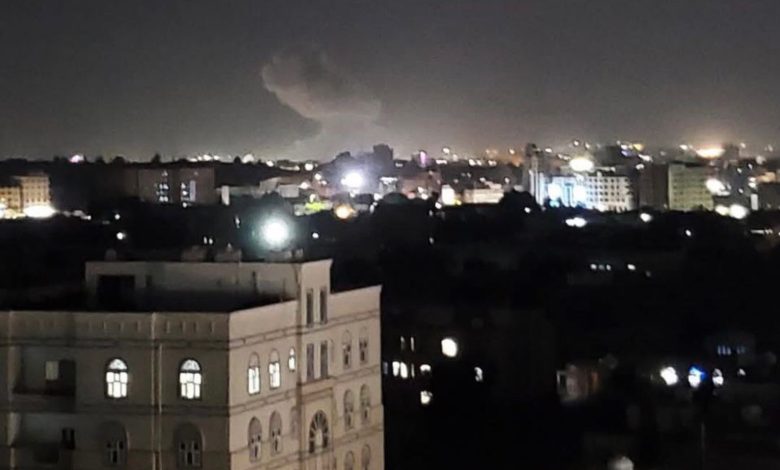Tri-nation Airstrike by the US, Israel, and the UK on Sana’a; Yemeni Army: This Aggression Threatens Regional Security
The spokesperson for the Yemeni army confirmed, in a brief tweet, that a joint airstrike by American, Israeli, and British forces targeted various areas of the capital, Sana'a, and described it as a "blatant violation of national sovereignty and an escalation of tensions." The attacks, which occurred early today, have yet to provide an exact toll on casualties and damage.

Weezha Roz–Kabul–According to reports, several targets, including administrative centers and military sites in Sana’a and its outskirts, were hit. Local sources reported consecutive explosions and dense smoke in the sky over the city.
Some international media outlets have claimed that the operation was aimed at weakening the missile capabilities of Yemeni forces.
The spokesperson for the Yemeni army further warned: “This military aggression will result in a hard and calculated response.
The coalition of aggressors is responsible for any escalation of the crisis in the Red Sea and the Bab al-Mandab Strait.
” He also alleged that these attacks were carried out with “direct coordination” from some Gulf Arab countries.
So far, none of the countries involved (the US, Israel, or the UK) have officially claimed responsibility for the strikes.
The United Nations, in a statement, called for “restraint by all parties” and “avoiding the expansion of the conflict.”
In contrast, some Palestinian resistance groups have described the attack as a “war crime.”
Political observers believe this tri-nation airstrike is part of the intensification of regional disputes over vital maritime routes and the indirect conflict between major powers in Yemen.
In recent years, Yemen has become a battleground for geopolitical competition between Iran, Saudi Arabia, and the West, impacting the security of the Gulf region.
Military experts warn that this attack may lead to an increase in missile strikes by Yemen on oil tankers or Israel-related targets in the Red Sea.
Concerns about the exacerbation of famine and the humanitarian crisis in Yemen, due to previous blockades, have once again reached their peak.
While the West and its allies label these attacks as “defensive actions,” many human rights organizations and independent countries have condemned the West’s “dual policy regarding the Yemen crisis.”
It seems that resolving this crisis without a shift in the international community’s approach to the war in Yemen remains out of reach.
Weezha Roz




